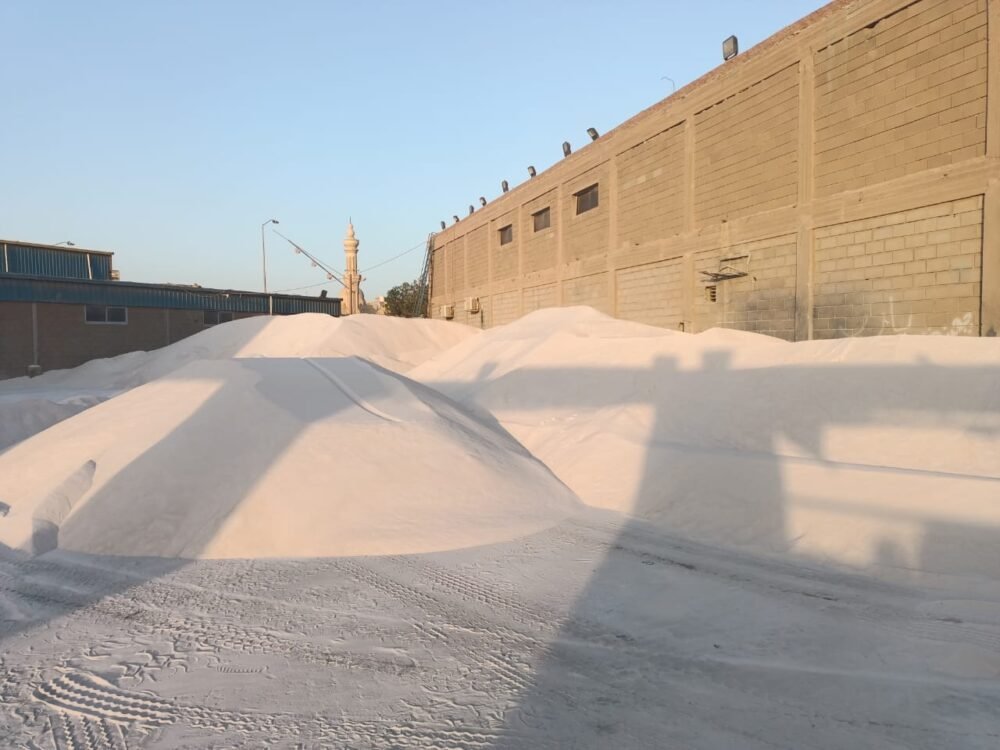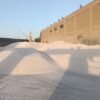Customer Support: 604793
silica sand
Silica sand is a type of sand that contains a high concentration of silica (silicon dioxide). It is one of the most common varieties of sand found in nature and is widely used in various industries.
Silica sand primarily consists of granular particles of quartz, a crystalline form of silica. The chemical formula of silica is SiO2, indicating that each silica molecule is composed of one silicon atom bonded to two oxygen atoms. Silica sand may also contain other minerals and impurities, depending on its source and geological history
Silica sand primarily consists of granular particles of quartz, a crystalline form of silica. The chemical formula of silica is SiO2, indicating that each silica molecule is composed of one silicon atom bonded to two oxygen atoms. Silica sand may also contain other minerals and impurities, depending on its source and geological history.
Silica sand has several distinctive properties:
High Purity: Silica sand is known for its high purity, usually containing more than 95% silica. The high silica content makes it valuable in applications that require low impurities, such as glass manufacturing and foundry casting.
Hardness and Durability: Silica sand is relatively hard and resistant to weathering and abrasion. It has a hardness of around 7 on the Mohs scale, which means it is harder than most common minerals and can withstand mechanical stresses.
High Melting Point: Silica sand has a high melting point of approximately 1,700 degrees Celsius (3,092 degrees Fahrenheit). This property makes it suitable for applications that involve high-temperature processes, such as metal casting and glass production.
Uses and Applications:
Silica sand finds extensive use in various industries due to its desirable properties:
Glass Manufacturing: Silica sand is a key ingredient in the production of glass. It provides the necessary silica content to form a glass matrix when melted at high temperatures. Silica sand with high purity and controlled particle size is preferred in the glass industry to ensure the desired clarity, strength, and thermal resistance of the glass.
Foundry Casting: Silica sand is used extensively in foundry casting processes. It serves as the primary molding material due to its ability to withstand high temperatures and provide dimensional stability. Silica sand is mixed with a binder to create molds and cores for metal casting.
Construction and Building Materials: Silica sand is used in the construction industry for a variety of purposes. It is a primary component in concrete and mortar, where it acts as a filler and enhances the strength and durability of the materials. Silica sand is also used as a bedding material for paving stones and as a component in construction adhesives.
Filtration and Water Treatment: Silica sand is commonly used as a filtration medium in various water treatment processes. It helps remove suspended particles, turbidity, and impurities from water in applications such as swimming pool filters, drinking water treatment, and wastewater treatment systems.
Sports and Recreation: Silica sand is used in the construction of sports fields, such as golf courses and athletic fields. It provides a suitable playing surface with good drainage properties and helps maintain proper soil structure.
Industrial Processes: Silica sand is utilized in several industrial processes, including hydraulic fracturing (fracking) in the oil and gas industry, abrasive blasting for surface preparation and cleaning, and manufacturing of ceramics, paints, and coatings.
It’s worth noting that certain forms of silica, such as crystalline silica dust, can pose health risks when inhaled. Occupational safety measures, such as proper ventilation and personal protective equipment, are necessary when working with silica sand to minimize the risk of respiratory issues.
In summary, silica sand is a versatile material with a wide range of applications in industries such as glass manufacturing, foundry casting, construction, water treatment, and more. Its high purity, hardness, and thermal resistance make it valuable in various industrial processes.











